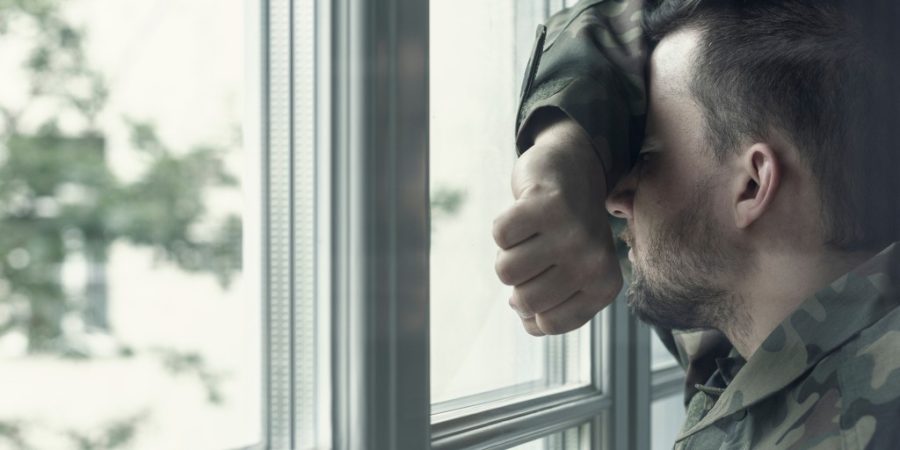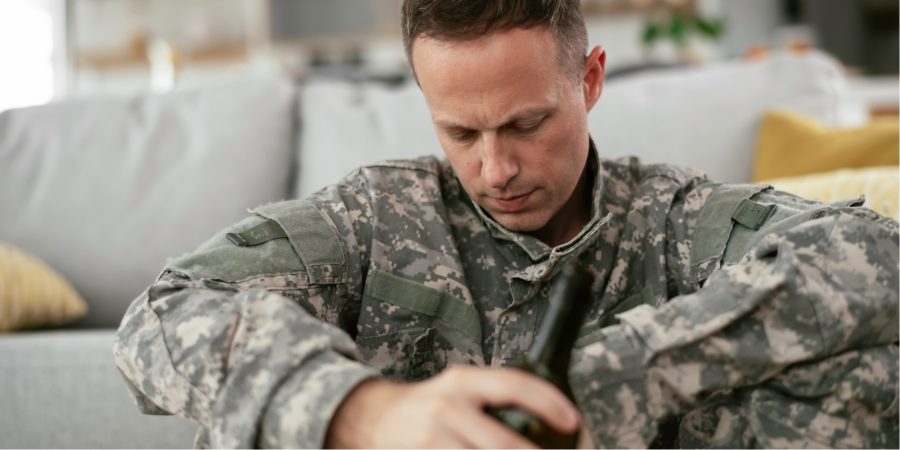
The world around us has slowed down since early March, and the coronavirus pandemic is still affecting all facets of life. While everyone can feel these impacts in different ways, veterans are uniquely affected by COVID-19. Not physically, of course, but in the mental effects that life during a pandemic can have.
What makes veterans so predisposed to issues related to the coronavirus pandemic? And how can you help yourself or a veteran you know deal with the pandemic? Today, we’re going to answer both of those questions.
Table of Contents
Increased Isolation


For veterans with post-traumatic stress disorder (PTSD), interpersonal connections can make a world of difference in their mental wellness. Among many of the veterans we work with, people tend to do best when they have clearly established support networks. Unfortunately, the coronavirus pandemic has made these connections far harder for veterans to maintain.
Without regularly seeing friends and other loved ones, veterans can easily feel like they’re alone again. And that can trigger their PTSD symptoms. As military personnel spend more and more time alone, the signs of PTSD can become more apparent. Not only is that a problem in and of itself, but it creates a vicious cycle where symptoms only get worse.
One of the most common PTSD symptoms is difficulty leaving the home or accomplishing basic tasks. When anxiety and stress about leaving home get stronger due to a resurgence in signs of PTSD, veterans are unlikely to leave. But the less they leave home, the more their symptoms worsen and the stronger those symptoms become. In this way, the pandemic has affected veterans by making it much harder for them to reach out to others for support.
More PTSD Triggers
For many people with PTSD, their symptoms flare up when they are exposed to certain “triggers.” These can be loud noises, certain words or phrases, or anything else that reminds the individual of their trauma. And since conversations about COVID-19 are all but inescapable now, many veterans have reported exposure to more and more triggers.
Hearing people discuss the “war against COVID” or how to “battle the virus” can remind veterans of their traumatic experiences. Additionally, while face masks are safe for nearly everyone, some veterans whose trauma involves having their mouth covered or otherwise being unable to breathe may experience distress at wearing a mask.
All of these factors can make veterans feel more agitated or stressed during the pandemic. While many adults feel that way even without PTSD, the addition of a mental health condition often makes these feelings stronger and harder to escape.
Easier Access to Drugs and Alcohol


For people who are living with untreated PTSD or other invisible wounds of war, there is substantial risk of developing a substance use disorder. This is true during normal times, and it’s especially true during the pandemic.
As we established above, many veterans are already not in the best mental state due to the pandemic. That makes it easier to rely on drugs and alcohol as a quick fix, even if an individual has never showed signs of addiction before. Normally, loved ones might take notice of a sharp increase in drinking or using drugs. However, thanks to the pandemic, veterans have lost that kind of immediate connection, which can make it easier for substance abuse issues to go untreated.
Even for veterans who have successfully completed rehabilitation programs, the pandemic can drastically increase risk of relapse. Many people participate in 12-step programs to stay engaged in recovery, but some locations have had to stop meeting due to the pandemic. Without that kind of continued support, military personnel could easily struggle with the temptation to relapse. And while some industries have closed down, liquor store and drug dealers have largely remained in business.
What Can Veterans Do to Stave Off the Pandemic Effects?
Whether you’re a veteran yourself or you know someone who is, it’s easy to feel powerless in this situation. But even though you can’t stop the pandemic, there are steps you can take to help a veteran get through this challenging time.
First, put in extra effort to keep lines of communication open. As adults, it’s already hard to keep in touch with all of our friends and extended family members. But those connections are vital for a lot of veterans, so go the extra mile to set up video calls. You don’t have to frame it as checking on them, either; just say that you want to enjoy a conversation with them.
Obviously most relationships don’t allow for someone to directly ask if the other person has a substance abuse issue. However, there are other ways to ask about related topics. Ask how they’ve been managing stress, for example, to get a better idea of how they’re coping with the situation. If they respond with coping mechanisms, there’s a good chance that they have a handle on the situation. But if they seem unsure or say that they’ve been drinking a lot, there may be cause for concern.
Finally, if you suspect that a veteran in your life (or yourself) may have resurging PTSD or substance abuse symptoms due to the pandemic, tell them where to get help. At Heroes’ Mile, we offer comprehensive treatment for and by veterans. From detoxification to partial hospitalization, we work to help veterans through every step of recovery.
If you’d like to know more about our services, give us a call at 888-838-6692 or reach out via our digital contact form. The pandemic affects us all differently, but you can take these steps to look after the veterans in your life.
The post How Coronavirus Affects Veterans Like Nobody Else appeared first on Heroes’ Mile Veterans Recovery Center.
Source
Original Author: Heroes’ Mile

